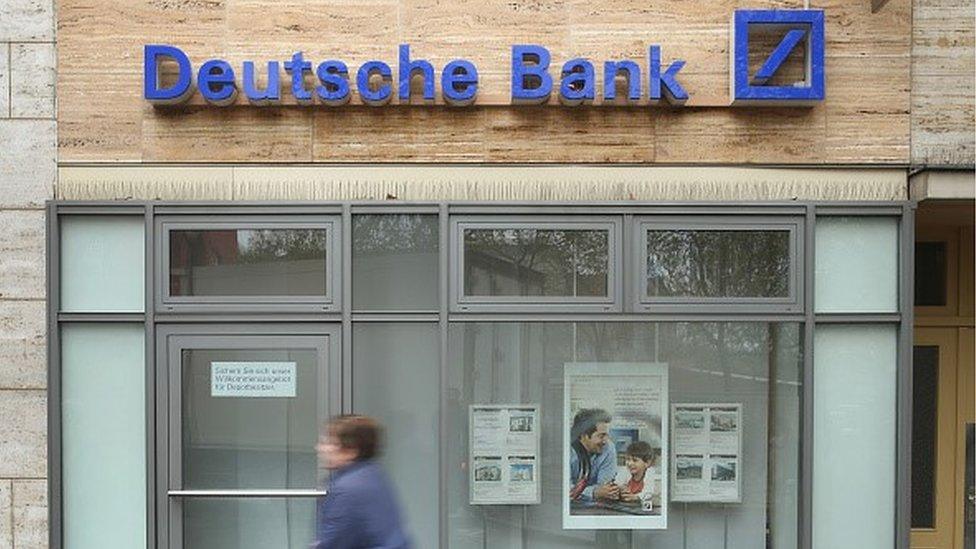Deutsche Bank fined by regulators over money laundering claims
- Published

Deutsche Bank has been fined $630m (£504m) by US and UK regulators in connection with a Russian money laundering plan.
Under the scheme, clients illegally moved $10bn out of Russia via shares bought and sold through the bank's Moscow, London and New York offices.
had missed "numerous opportunities" to detect, investigate and stop the scheme.
Deutsche Bank said it was co-operating with regulators.
It also said it had put aside money to cover the cost of the settlement.
During the investigation, New York authorities and Britain's Financial Conduct Authority (FCA) found that so called "mirror" trades had been carried out through the bank between 2011 and 2015.
Clients would purchase stocks in roubles in Moscow before their counterparts sold the same stock at the same price through the bank's London branch.
'Unsafe and unsound'
"By converting roubles into dollars through security trades that had no discernible economic purpose, the scheme was a means for bad actors within a financial institution to achieve improper ends while evading compliance with applicable laws," according to the legal document detailing the settlement with DFS.
Regulators blasted the bank for failing to spot the ruse, saying it had conducted its business in an "unsafe and unsound" manner.
They also said the lender's anti-financial crime teams were ineffective and understaffed.
In total, New York authorities fined the bank $425m while the UK's FCA's fine was £163m, or about $204m.
In addition to paying the settlement, Deutsche Bank also will be required to hire an outside monitor to review its internal compliance measures.
It comes less than two weeks after the German bank finalised a $7.2bn settlement with the US Justice Department over its role in the 2008 financial crisis.
In addition to Monday's action, regulators fined three other banks for violations of anti-money laundering laws.
Italy's Intesa Sanpaolo was fined $235m, Agricultural Bank of China was fined $215m and and Mega Bank of Taiwan was fined $185m.
Mirror trades - how do they work?
A trading desk in Moscow would buy shares in big Russian companies - typically worth $2m-$3m.
Shortly afterwards - sometimes on the same day a related party would sell the identical Russian shares in the same quantity and at the same price through Deutsche's London branch.
The two parties to the trade would be closely related - for example owned by the same company.
They frequently lost money on these trades due to the cost of the transaction but would manage to surreptitiously convert rubles to dollars through the transaction.
The trades are not inherently illegal but, where there is no good economic reason, "are highly suggestive of financial crime", according to the US regulator.
- Published23 December 2016
- Published30 September 2016